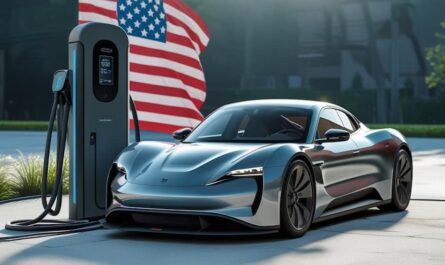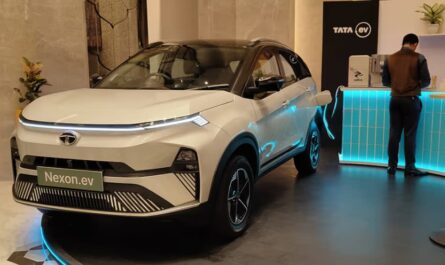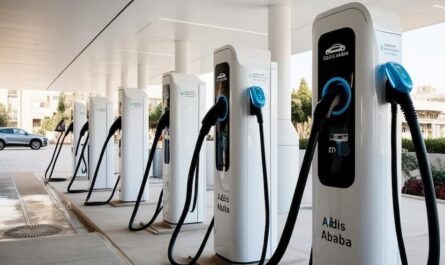If you’re considering owning an EV (electric vehicle) or are curious about how India is supporting this green transition, understanding the key players in the EV charging station landscape can really help you get a clearer picture. Electric vehicles are gradually becoming a common sight on Indian roads, and with this shift, the demand for reliable and accessible ev charging infrastructure is growing too. So, who are the companies powering this change, and what makes their offerings great?
Who are the leading ev charging station companies in India
Tata Power EV Charging Solutions is one of the most recognized names. India’s ev charging market is bustling with activity, featuring a mix of established energy giants and innovative startups. You might already know Tata Power for its energy services, but it has also built a vast network of over 60,000 charging points across the country.
They provide both AC chargers, suitable for home or office use, and DC fast chargers that can juice up your vehicle quickly on the go. Their smart charging solutions, including a user-friendly mobile app, make locating and using chargers convenient for ev owners.
Meanwhile, Fortum India operates under the brand GLIDA and focuses on sustainability by running over 70 solar-powered public charging stations. This approach not only offers you a way to charge your vehicle but also supports cleaner energy use, thereby reducing carbon footprints.
Another notable player is Charge Zone, which has around 3,500 chargers and ambitious plans to scale up to one million by 2030, especially targeting highway corridors. Their app-based tracking system helps you find chargers easily, which is important when you’re on a long trip.
You can also find companies like Exicom, which manages over 65,000 chargers across more than 400 cities, and Ather Energy, known for its proprietary fast-charging standard and expansion into smaller cities. Ola Electric Mobility Ltd is another interesting company, offering integrated charging stations specifically designed for its electric scooters, accessible via its mobile app.
Available India’s ev charging stations
When you think about charging your electric vehicle, the type of charger matters a lot. You should know that India primarily uses three types of ev charging stations: AC chargers, DC fast chargers, and battery swapping stations.
AC chargers are generally slower and perfect for overnight charging at home or work. On the other hand, DC fast chargers are designed for quick top-ups, usually found at commercial locations or highways, which means you can get back on the road faster.
Battery swapping stations offer a novel approach primarily for two- and three-wheeled vehicles by allowing users to replace an empty battery with a fully charged one, thereby saving you waiting periods.
How Indian government is supporting ev charging infrastructure
You might wonder how the government fits into this picture. The Indian government has introduced updated guidelines to accelerate the rollout of EV charging stations. For example, they have mandated faster electricity connections for charging points and introduced a single-window online approval system to reduce delays. This means that companies can set up charging stations more quickly, benefiting you as an EV user.
Moreover, the government encourages solar-based charging by offering incentives for daytime solar-powered charging, making your ev charging more affordable and eco-friendly. They also capped service charges until 2028 to keep pricing transparent and predictable. This is important because it builds trust and encourages more people to switch to electric cars without worrying about hidden costs.
Present condition of EV charging facilities in India
You might be surprised to learn that India’s electric car charging infrastructure has expanded dramatically in recent years. From just around 1,800 public stations in early 2022, the number has jumped to over 26,000 by April 2025, spread across Tier-1, Tier-2, and Tier-3 cities. Karnataka tops the list with close to 5,900 stations, with Maharashtra and Delhi coming in next. This rapid growth is aimed at addressing “range anxiety,” which is the fear of running out of charge without a nearby station.
But, the ratio of electric vehicles to public chargers still shows room for improvement. At present, the ratio stands at about one public charger per 135 electric vehicles, while the worldwide average spans from one charger for every 6 to 20 electric vehicles. This means you should expect the infrastructure to keep growing, especially with government targets aiming for nearly 4 million charging stations by 2030 to support 80 million evs.
Note: If you’re thinking about buying an EV or already own one, knowing who provides charging services and where they are located can save you a lot of hassle. The expanding network means you can plan your trips better and reduce downtime due to charging. Also, companies are increasingly integrating smart apps that allow you to find, book, and pay for charging conveniently, making the experience user friendly.
Moreover, the push towards renewable energy integration, like solar powered stations, means your electric vehicle usage can be greener, contributing to cleaner air and a healthier environment. This is a win win for you and the community.
Known challenges in India’s ev charging ecosystem
Despite the progress, challenges like uneven distribution of charging stations remain. Urban centers are well covered, but rural and semi urban areas still lag behind, which can be inconvenient if you travel outside major cities.
Additionally, the cost of setting up fast chargers is high, and land acquisition in prime locations can be tricky. But, government policies are addressing these issues by making land leasing more affordable and easy approvals.
For more information on charging stations in India, check out this guide on: Electric car charging stations in India
You also have the option to monitor applications and platforms offered by top providers such as Tata Power, Charge Zone, or Bolt.Earth, which is India’s biggest electric vehicle charging network boasting more than 37,000 charging stations. These apps not only help you locate chargers but also provide real time availability and payment options, to make your electric car experience smoother.



